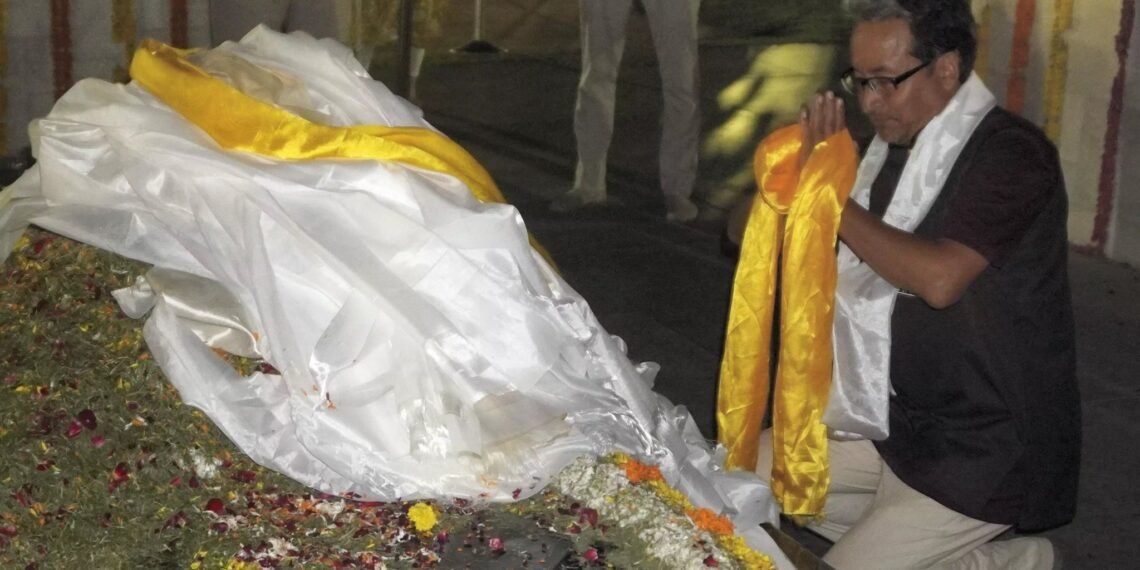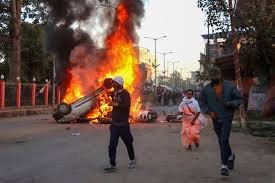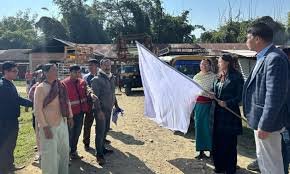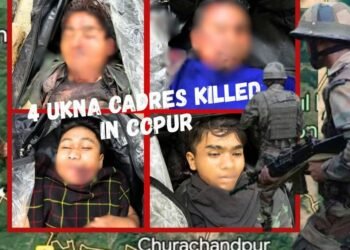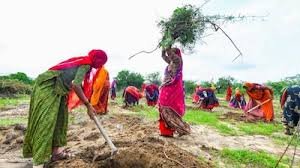Targeting voices like Sonam Wangchuk’s raises concerns over selective outrage and the shrinking space for public debate in the country.
BY Navin Upadhyay
The detention of renowned climate activist and innovator Sonam Wangchuk under the draconian National Security Act (NSA) has ignited a firestorm of criticism, with civil society groups decrying it as a blatant case of selective vigilantism. Wangchuk, 59, was arrested on September 26 and shifted to Jodhpur Central Jail in Rajasthan, just two days after violent clashes in Leh left four dead and over 80 injured during protests demanding statehood and Sixth Schedule protections for Ladakh.
The Union Territory administration’s accusations—ranging from inciting violence through “provocative statements” to financial irregularities—appear riddled with loopholes, raising a stark question: If Wangchuk can be slapped with NSA for words and unproven diversions, why not the hordes of politicians, rioters, and tycoons whose actions and rhetoric have fueled far bloodier unrest and siphoned billions?
What’s even more bizarre is how all these evidences and charges against Sonam Wangchuk seemingly surfaced overnight. If he truly posed a threat to the nation and the government was aware of it all along, why was he entertained instead of being put behind bars long ago—before any potential unrest in peaceful Ladakh?
Many observers believe the law has been selectively applied, with facts conveniently interpreted to build a case against a climate activist. This raises serious questions about consistency, accountability, and the politicization of justice.
Wangchuk, a Ramon Magsaysay Award winner celebrated for his sustainable education models and environmental advocacy, has denied all charges, calling his arrest a “scapegoat” tactic to deflect from the government’s failure to engage meaningfully with Ladakh’s demands.
His supporters, including wife Gitanjali Angmo and activists like Prashant Bhushan, argue that the Ladakh UT’s narrative twists context, ignores his repeated calls for non-violence, and conveniently overlooks similar or worse transgressions elsewhere. As the Leh Apex Body (LAB) and Kargil Democratic Alliance suspend talks until Wangchuk’s release and a judicial probe into the September 24 deaths, the case exposes a troubling pattern: Dissent from the margins is crushed, while mainstream firebrands and fat cats roam free.
The “Provocative Statements” Trap:
At the core of the administration’s case are Wangchuk’s alleged “incendiary” remarks, including references to Nepal’s “Gen Z revolution,” Bangladesh’s unrest, and the “Arab Spring” as metaphors for youth-led change.
In a YouTube interview, he reportedly said youth “do not want peace” and that Gandhi’s path “is not necessary,” while advising protesters to wear masks and hoodies for “Covid protection”—framed by officials as a ploy to evade identification.
On June 8, via his channel ‘Achoe Nyingstam,’ Wangchuk is accused of floating an “Arab Spring-type revolution” to “overthrow the government” if demands aren’t met, even suggesting self-immolation akin to Tibetan protests.
Loopholes abound here. First, context is king: Wangchuk’s “overthrow” rhetoric was hyperbolic advocacy for democratic pressure, not a literal call to arms—echoing global protest lexicon without endorsing violence. He ended his hunger strike on September 24 amid the chaos, urging youth to “stop the violence forthwith” and reiterating non-violence as Ladakh’s path.
On Gandhi Jayanti, the spirit of Mahatma Gandhi’s non-violent struggle for India finds a living echo in Sonam Wangchuk’s peaceful movement for Ladakh.
Through four fasts (5 days, 21 days, 16 days, and 15 days) in the pursuit of justice, he embodied Gandhi’s silent strength.… pic.twitter.com/ztN6vOOZLP— Tsering Gaphel ༅༎ཚིི་ཪིང་དགའ་འཕེལ།། (@Tsering_gaphel) October 2, 2025
Yet, the administration claims he “made no attempts to ensure peace” and “discreetly moved out,” ignoring that elderly LAB leaders also rushed to calm the mob while Wangchuk prioritized de-escalation from his site.
If such speech warrants the NSA, then a long queue awaits. In April 2025, Manipur Rajya Sabha MP Leishemba Sanajaoba—titular Meitei king and BJP leader—openly rallied the Arambai Tenggol militia, exhorting that its vigilantes to ” will be ready to take up arms for the call to defend our land,” even as public weapon surrenders were being staged for optics.
The Arambai Tenggol, accused of looting armories and orchestrating attacks on minorities during Manipur’s ethnic violence—which has claimed over 200 lives since 2023—remains untouchable under Sanajaoba’s patronage. Its Commander-in-Chief, Khuman Karungabna, moves freely despite multiple NIA charges of murder, arson, and assault.
The impunity granted to this militia raises stark questions about selective enforcement of law and the state’s complicity. When a parliamentarian openly glorifies an armed vigilante group and its leaders walk unbothered by terrorism charges, the rule of law itself stands hollowed out.
Similarly, during the 2020 Delhi riots (53 dead), BJP leader Kapil Mishra’s speech vowing to “clear roads” of protesters if police failed was blamed for sparking mob violence with swords and guns—yet he faced no detention.
And the Nuh-Gurugram riots of 2023? Hindu processions armed with swords and sticks provoked clashes killing seven, with mobs torching mosques and shops—yet senior BJP leaders downplayed it as “mutual provocation,” escaping NSA.
If Wangchuk’s words are “prejudicial to security,” these overt arm-bearers and inciters should be first in line for Jodhpur.
READ: RSS Chief Bhagwat’s Rare Praise for PM Modi at Dussehra Rally
Financial Irregularities:
The Ladakh administration piles on with claims of fund diversion: Wangchuk’s NGO, Students’ Educational and Cultural Movement of Ladakh (SECMOL), allegedly deposited local funds into its FCRA account, used CSR money for “non-permissible” sovereignty studies, and failed to route foreign contributions properly.
The Home Ministry revoked SECMOL’s FCRA license on September 25, with CBI probing since July and ED eyeing money laundering.
But here’s the loophole: These are administrative lapses at worst, not proven fraud. SECMOL, which revolutionized Ladakh’s education with solar-powered schools and eco-innovation, receives CSR from PSUs Wangchuk critiques—hardly a “smoke screen” for sedition.
No arrests for executives there. Contrast with corporate behemoths: The 2018 PNB scam saw Nirav Modi and Mehul Choksi flee after diverting ₹14,000 crore in fraudulent Letters of Undertaking for luxury abroad—yet years later, no NSA, just extradition chases.
Vijay Mallya siphoned ₹9,000 crore from Kingfisher loans for jets and yachts, defaulting spectacularly; he’s a fugitive, not NSA-detained.
DHFL’s ₹34,000 crore fraud involved fake accounts for luxury real estate—promoters charged, but no preventive detention. Anil Ambabi’s company account has been declared fraud and he faces grave charges, but has he been arrested? Similarly, Gautam Adani faces allegations of bribery, with charges linking him to attempts at influencing officials and securing undue business advantages.
RBI data shows loan frauds tripled to ₹33,148 crore in FY25, mostly advances diverted for personal gain—yet tycoons get NCLT workouts, not NSA.
PwC’s 2024 survey flags procurement fraud up 21% in India, with 59% of firms hit— but activists like Wangchuk, not CEOs, face the hammer.
The September 24 Leh violence—torched BJP offices, stone-pelting, police firing—was tragic, but pinning it solely on Wangchuk ignores the spark: Two hunger strikers hospitalized after 35 days of ignored pleas for talks.
The real threat? A law wielded as a weapon against the voiceless, while the powerful preach “peace” from podiums stained with blood and billions. As Wangchuk languishes, Ladakh’s calm post-curfew lift belies stalled talks and simmering rage. In a democracy, silencing Gandhi’s heirs won’t forge unity—it forges fault lines. If not Wangchuk today, who tomorrow?


